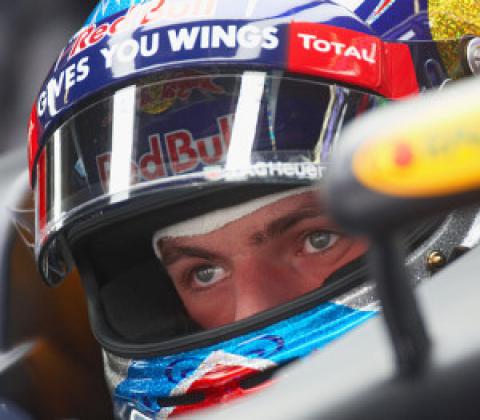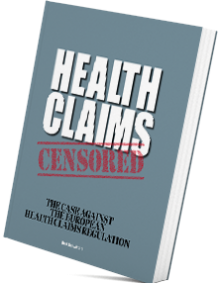One of Formula 1’s successful drivers is Max Verstappen. Max is 18 years old. By the standards applied by the World Health Organization, Max is an adolescent. Max drives a Red Bull racecar. When he was 17, he began his Formula 1 career as a driver for Toro Rosso,
Red Bull‘s second team in the Formula 1. Not only is Max an extremely talented driver, he is also intelligent, charming, well-mannered and diplomatic. In the world of Formula 1 drivers, he sticks out as modest yet determined. Between races he works-out “like hell” to keep his head in the right place during the races.
Because Max is an adolescent, several Nannies nested in the European Parliament don’t want Max to know that the caffeine in the Red Bull drinks marketed by his boss improves concentration, increases alertness, and contributes to an increase in endurance performance and endurance capacity. [i] These effects of caffeine have been common knowledge since man began drinking coffee, but it was only until the European Food Safety Authority’s approval of this traditional knowledge that European legislators decided to authorize it for use as “health claims” on food-products containing caffeine.
Most people add sugar to their coffee, to their tea, to their hot-chocolate. So do manufacturers of “energy” drinks containing caffeine. According to Max’s boss, his particular drink “gives you wings.” Not the wings that keep Max’s red bull glued to the race-track, but the kind of wings that Italians experience after taking a sweet “ristretto.” But, according to the Nannies in EU’s Parliament, because the highest prevalence of consumption of wings-drinks has been observed in the adolescent consumer group, Max is not to know that his Boss’ drink will give him wings that differ from the ones that keep his car from flying at 320 km an hour. [ii] His Boss may tell Max about the more ephemeral wings in Red Bull‘s motor-home, but he may not tell Max on the label of his Red Bull drinks.
In spite of the fact that European legislators proposed to accompany their caffeine “claims” by the recommendation not to exceed a daily intake of 400 mg of caffeine from all sources, the Nannies in EU’s parliament are up in arms. In their phantasy worlds, health claims are “a driver of consumption.” [iii] In this world, consumers who are already well aware of the “wings” they get when drinking sweet caffeine drinks will drink more of them when they can read on the label what they already knew. Therefore, the adolescent driver of one of the Red Bull Formula 1 racecars should not be exposed to the “driver of consumption” called health claim.
This is the European Union at work. This is the European Union that 52% of the Brits don’t like. This is the Union that, most likely, the majority of European people who are still in the EU don’t like. This is the Union that the first vice-president of the European Commission, Frans Timmermans, is desperately trying to de-regulate. This is the Union that treats a full-fledged and highly competent Formule-1 driver like Max Verstappen as a stupid, ignorant and vulnerable “kid” who must be protected against generally accepted scientific evidence that acknowledges what he and his fellow-adolescents already know.
Bert Schwitters
See also the previous Health Claims Censored Blog 58: The Undesirable Nutrient Profiles
[i] See: Amendments 001 to 020 – Motions for a resolution on the draft Commission regulation amending Regulation (EU) No 432/2012 establishing a list of permitted health claims made on foods other than those referring to the reduction of disease risk and to children’s development and health – B8-0842/2016 (001 to 020)
[ii] See Amendment 8 – B8-0842/2016
[iii] See Amendment 3 – B8-0842/2016




